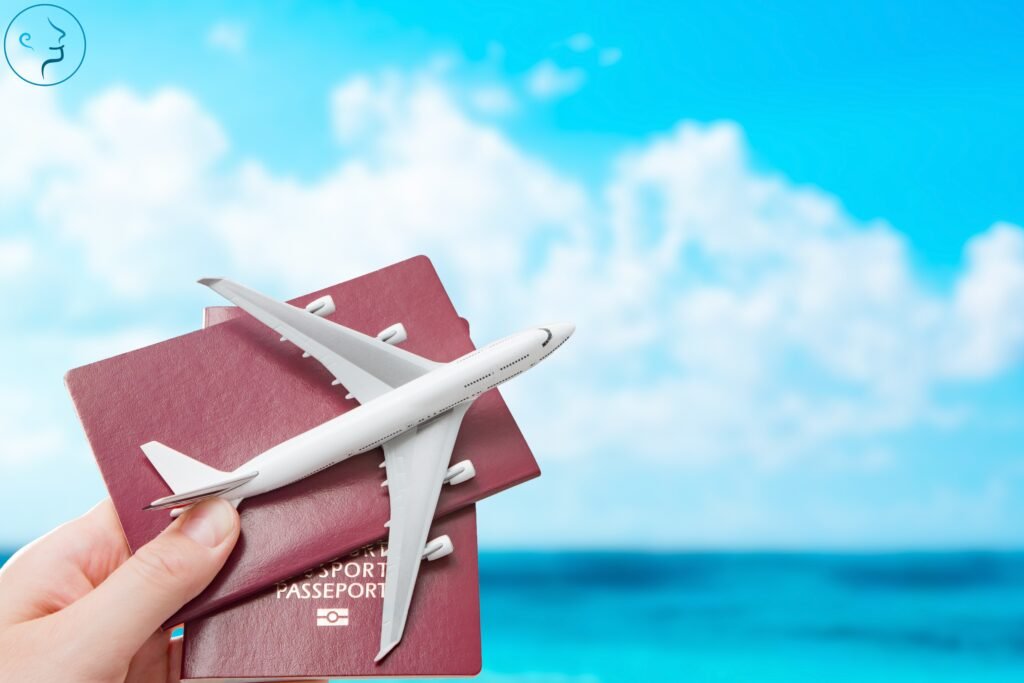
Rhinoplasty and Travel: What You Need to Know Before Flying or Vacationing
Rhinoplasty is more than just a cosmetic procedure—it’s a journey that can enhance your confidence, improve facial harmony, and even resolve breathing difficulties. But if you have an upcoming trip, you’re probably wondering: When can I safely travel after rhinoplasty?
At ENT Clinic of Excellence, Dubai’s leading ENT clinic, we prioritize your health and comfort every step of the way. Here’s what you need to know about traveling after nose surgery in Dubai to ensure a smooth recovery and stress-free trip.
Can You Fly After Rhinoplasty?
Flying too soon after rhinoplasty can increase swelling and discomfort due to cabin pressure changes, potentially slowing your healing. Here’s a general timeline to help you plan:
- First 1–2 Weeks: Avoid flying. This is the critical recovery phase, and pressure changes can worsen swelling or pain.
- 3–4 Weeks Post-Op: Short flights may be possible but only with your surgeon’s approval.
- After 4–6 Weeks: Long-haul flights are generally safe, but always confirm with your ENT consultant.
Why Is Early Travel Risky?
Rushing into travel before your nose has healed can cause:
- Increased Swelling and Discomfort: Airplane cabin pressure can strain healing tissues.
- Higher Infection Risk: Airports and planes expose you to many germs; your immune system is still recovering post-surgery.
- Limited Access to Care: If complications occur abroad, it may be hard to get specialized medical support quickly.
Tips for Safe Travel After Rhinoplasty
If travel is unavoidable or planned post-recovery, keep these expert tips in mind:
- Consult Your ENT Surgeon: Always get personalized advice before booking flights or trips.
- Stay Hydrated: Drink plenty of water to reduce swelling and support healing.
- Elevate Your Head: Use a neck pillow or travel pillow to keep your head elevated during rest.
- Take Frequent Breaks: On long drives, stop often to stretch and improve circulation.
- Protect Your Nose: Avoid crowded places and potential bumps; use sun protection if traveling to sunny destinations.
Frequently Asked Questions (FAQs)
1. Can I wear glasses while traveling after rhinoplasty?
Avoid wearing glasses resting on the nose bridge for at least 4–6 weeks. Consider contact lenses or ask your surgeon about protective splints.
2. Will airplane pressure affect my nose?
Yes. Cabin pressure can increase swelling and discomfort. Wait for your surgeon’s clearance before flying.
3. When can I swim after rhinoplasty?
Swimming should be avoided for at least 6 weeks post-surgery to prevent infection and protect healing tissues.
Why Choose ENT Clinic of Excellence for Your Rhinoplasty in Dubai?
At ENT Clinic of Excellence, we combine expert surgical skills with compassionate care to support you from consultation through recovery. Our dedicated team ensures your rhinoplasty journey in Dubai is safe, comfortable, and delivers the results you desire.
Ready to Plan Your Rhinoplasty Journey?
If you’re considering rhinoplasty in Dubai and want expert guidance on recovery and travel, contact the best ENT clinic in Dubai today.
📞 Call us at 0502480249
🌐 Book your appointment online at entclinic.ae
📍 Visit us at Second, Building 64 – Block A, 2nd Floor, Umm Hurair 2, Dubai Healthcare City
I have read several excellent stuff here. Definitely price bookmarking for revisiting. I surprise how so much effort you set to make such a magnificent informative site.
Hi there! Someone in my Facebook group shared this site with us so I came to take a look. I’m definitely loving the information. I’m bookmarking and will be tweeting this to my followers! Great blog and amazing style and design.